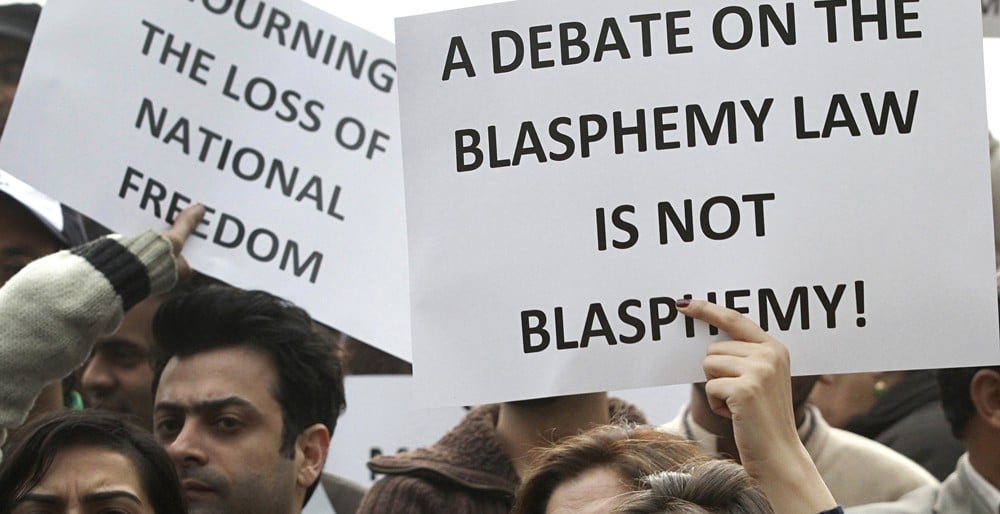
The judgment on Asia provides an interesting insight into the improvements that can be made on the part of the defence

On October 16, 2014 the Lahore High Court rejected Asia Bibi’s appeal to overturn her death sentence. The judgment, for most, was shocking because the case has received significant attention from the international media and human rights organisations based abroad. The assassination of Salmaan Taseer, former governor Punjab, and Shahbaz Bhatti, minister for minorities have also made this a high profile case.
Unlike most cases of blasphemy, which go unnoticed beyond media’s glare, Asia had a panel full of lawyers and four years to prepare for this appeal. Despite this, during proceedings one of the judges pointed out that the panel should decide amongst themselves and appoint one person to speak on behalf of the defence. The names of various organisations and lawyers have been attached to the case. The organisation that initially took up the case was the Bishop John Joseph Trust and S. K. Chaudhry was the lawyer who took up the case then.
It was ultimately this attention perhaps and the number of lawyers that led to Asia’s appeal being rejected. Sardar Mushtaq Gill, one of the lawyers on Asia’s defence counsel, points out, "This has become an international case. There were a number of grounds for the High Court to accept the appeal but they did not do so," he tells TNS. He cites the examples of other blasphemy cases that LEAD, the organisation he represents on the counsel, such as Younis Masih’s case in April 2013 and Khurram Shehzad’s case in 2012, in which the High Court overturned the death sentence. Both cases were argued by Naeem Shakir in court, a Supreme Court Advocate, who was also arguing Asia’s case.
One problem is the sheer number of people and organisations that represent one person. The idea, on the surface, seems good but there is little coordination between these representatives as was evident from the number of people who eventually wanted to speak in Asia’s defence during the appeal.
A human rights activist says on the condition of anonymity, "There is a competition amongst these organisations and individuals to highlight themselves internationally as the champion of human rights and Christians." He points out that cases of blasphemy that don’t receive media attention suffer from a dearth of people who want to take up the case. He cites the example of the case of Agnes Bibi, who was inducted on blasphemy charges in February 2011, similar to that of Asia’s, and died in March this year, while waiting for her case to be taken forward.
The large support and international pressure could have worked in Asia’s favour had these organisations put together their resources and intellect to help the accused. In Asia’s case, this clearly did not happen. Gill points to lack of coordination between various representatives, "To tell you the truth, there was zero coordination between us," he says, adding, "Everyone was running his own race and I was a part of this." He says there should have been at least one meeting amongst the counsel to coordinate.
But those looking at the larger picture don’t believe that it is fair to put the entire blame of High Court’s rejection of Asia’s appeal on lack of coordination.
Peter Jacob, activist and freelance journalist says, "This forms only 5-10 per cent of the people." According to him, the lack of proper representation for blasphemy accused needs to be addressed systematically at the governmental level. "I think, the Ministry of National Harmony, which is merged with the Ministry of Religious Affairs at the federal level and ministries of minorities at the provincial levels should monitor, provide protection, and legal counsel to all blasphemy cases."
The issue of false blasphemy cases being registered against people or the way that such cases need to be handled is an issue larger than the few lawyers or organisations representing Asia. It is bigger than this one judgment but this one judgment does provide an interesting insight into the improvements that can be made on the part of the defence.